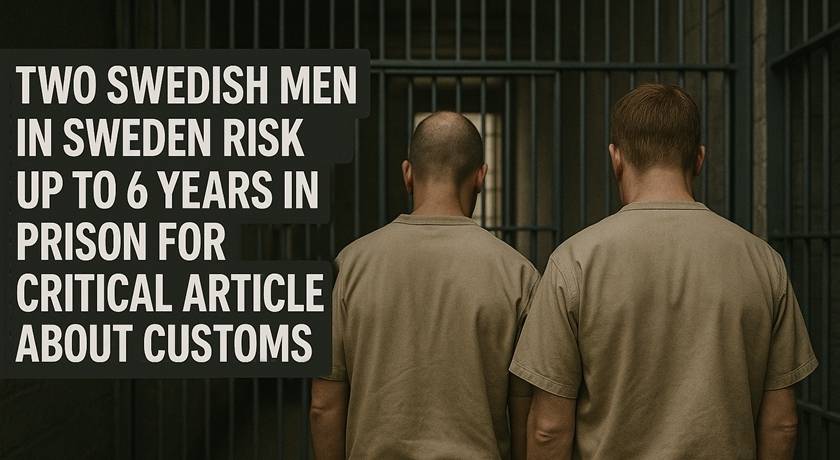
Two Swedes Risk 6 Years in Prison over Critical Article on Swedish Customs – Sweden Uses Evidence Banned Under EMFA (European Media Freedom Act) to Identify and Punish Sources
Two men in Sweden are facing prosecution that could lead to up to six years in prison simply for a critical article about the Swedish Customs Agency (Tullverket). The case is a stark warning of why the European Media Freedom Act (EMFA) is essential to uphold press freedom and protect sources against state retaliation.
According to the indictment, one of the accused is the domain owner of the site that published the article. The other had previously filed a formal complaint (JO-anmälan) about the very Customs incident the article criticizes – an invasive body search at the airport.
Critically, the prosecution’s evidence is based on targeted efforts to identify, track, and punish those responsible for the publication, including:
- Police interrogations of colleagues and family specifically to establish authorship or source
- Linking the formal complaint to the published content as supposed proof of responsibility
- Using domain registration details to tie an individual to the article
Under EMFA Article 4, Such Measures Are Strictly Prohibited
EMFA explicitly bans any state action to seek, identify, or punish sources, journalists, or providers of media services for the content of their publications. This prohibition applies both to collecting such evidence and to using it in court. The Swedish prosecution appears to have violated these fundamental guarantees, relying on exactly the kind of investigative measures EMFA was designed to eliminate.
This case demonstrates why EMFA is urgently needed—even in countries that consider themselves models of press freedom. Sweden has a strong international reputation, but this prosecution tells a different story: authorities pursuing criminal penalties against those who expose or criticize state agencies.
If Swedish courts allow this trial to proceed on such evidence, it will set a dangerous precedent that threatens press freedom not just in Sweden but across the EU. Rather than being a role model, Sweden risks proving precisely why EMFA was necessary.

